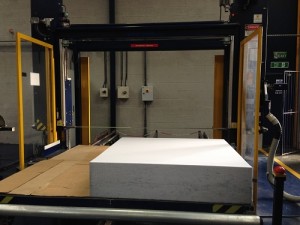Foam conversion is a fascinating process that involves the transformation of raw foam materials into a wide range of products used in various industries. This versatile technique allows manufacturers to create customized foam products that cater to specific needs and applications. From everyday household items to industrial components, foam conversion plays a crucial role in enhancing comfort, safety, and functionality.

Foam conversion is the process of converting raw foam materials into different shapes, sizes, and forms to create various foam-based products. It involves cutting, molding, laminating, and shaping foam to achieve the desired configuration. The method offers a cost-effective way to produce foam products that meet precise specifications while reducing waste.
The Advantages of Foam Conversion
Foam conversion offers numerous advantages across industries, making it a preferred choice for manufacturers and end-users alike. Let’s explore some of the key benefits:
Enhanced Comfort: Foam conversion allows for the creation Foam Conversion of comfortable and supportive products, such as mattresses, cushions, and pillows, ensuring better sleep and relaxation.
Improved Safety: In industries like automotive and aerospace, foam conversion is used to manufacture impact-absorbing materials, providing enhanced safety for passengers and components.
Customization: The process enables customization of foam products, ensuring they meet specific size, shape, and performance requirements.
Versatility: Foam conversion is versatile, with applications in industries like packaging, healthcare, sports, and insulation.
Lightweight: Foam-based products are lightweight, making them ideal for various applications where weight is a concern.
Insulation Properties: Foam conversion results in products with excellent thermal and acoustic insulation properties.
Eco-Friendly: Many foam materials used in conversion processes are eco-friendly, contributing to sustainable practices.
Conclusion
Foam conversion is a highly versatile and advantageous process that allows manufacturers to create a wide range of foam-based products tailored to specific needs. With its customizable nature, cost-effectiveness, and eco-friendly options, foam conversion continues to revolutionize various industries, offering enhanced comfort, safety, and functionality. As technology and innovation advance, foam conversion is poised to play an even more significant role in shaping the future of product design and development.